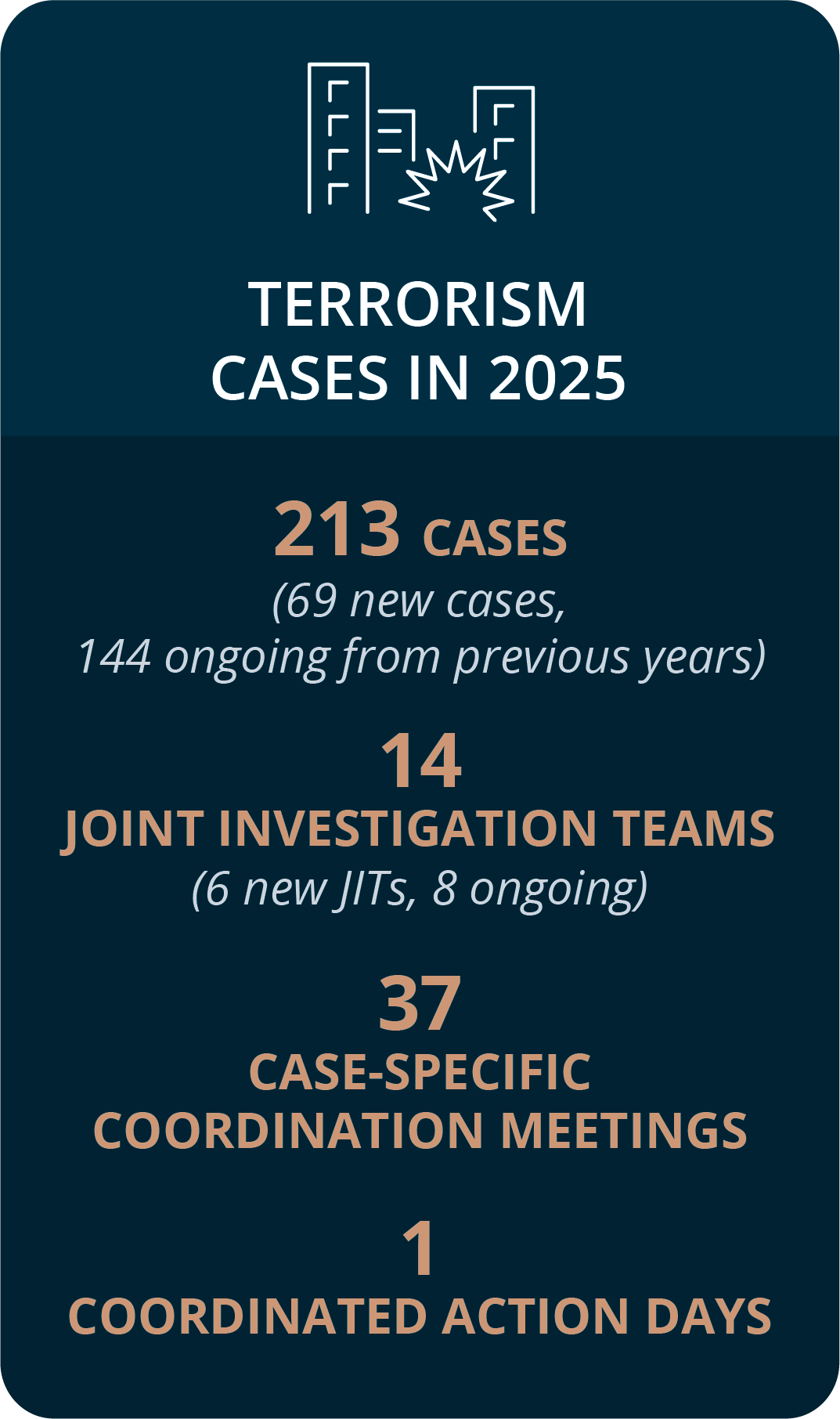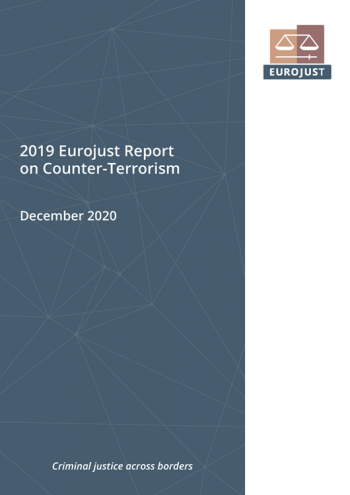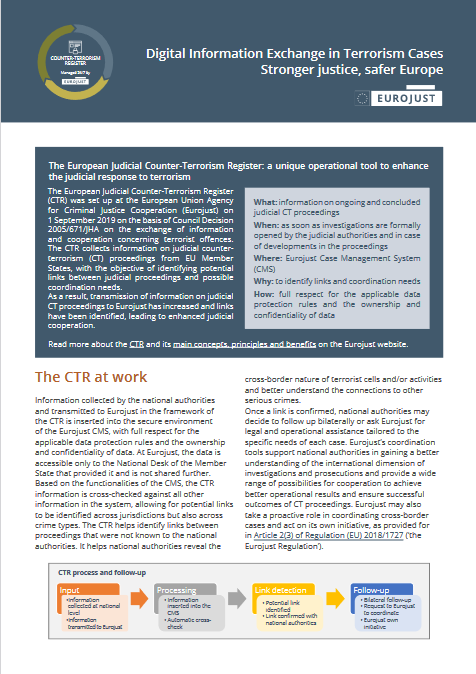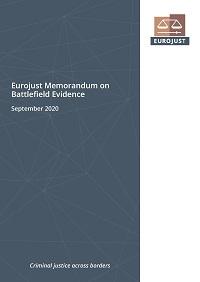
Terrorism represents a major threat to the safety of Europe’s citizens. Recent years have brought a rise in the frequency and scale of terrorist incidents within the European Union. The growing complexity for judicial authorities dealing with terrorism is reflected in a steady number of new terrorist cases coordinated through Eurojust’s National Members and Liaison Prosecutors, including following the terrorist attacks on the Thalys train, in Paris and Saint-Denis, Brussels and Zaventem, Nice, Saint-Etienne-du-Rouvray, Berlin, Stockholm, Barcelona and Cambrils, Turku, and Strasbourg. Increasingly, terrorist groups are highly organised and operate across borders, which presents mounting challenges to national authorities in the Member States and elsewhere. The unpredictable nature of ‘lone-actor’ terrorism presents national authorities with an additional challenge.
Eurojust assists national authorities by coordinating investigations and prosecutions and facilitating judicial cooperation in a growing number of cross-border terrorism cases. Eurojust also set up a European Judicial Counter-Terrorism Register to collect information on judicial counter-terrorism proceedings from all EU Member States and identify possible links. Through judicial cooperation and with the help of Eurojust, national authorities can also ensure that victims of terrorist acts are supported and protected and their rights are guaranteed. Further, the Agency works on a cross-border level to raise awareness and develop strategies to tackle specific issues, such as foreign terrorist fighters (FTFs) returning to Europe.



